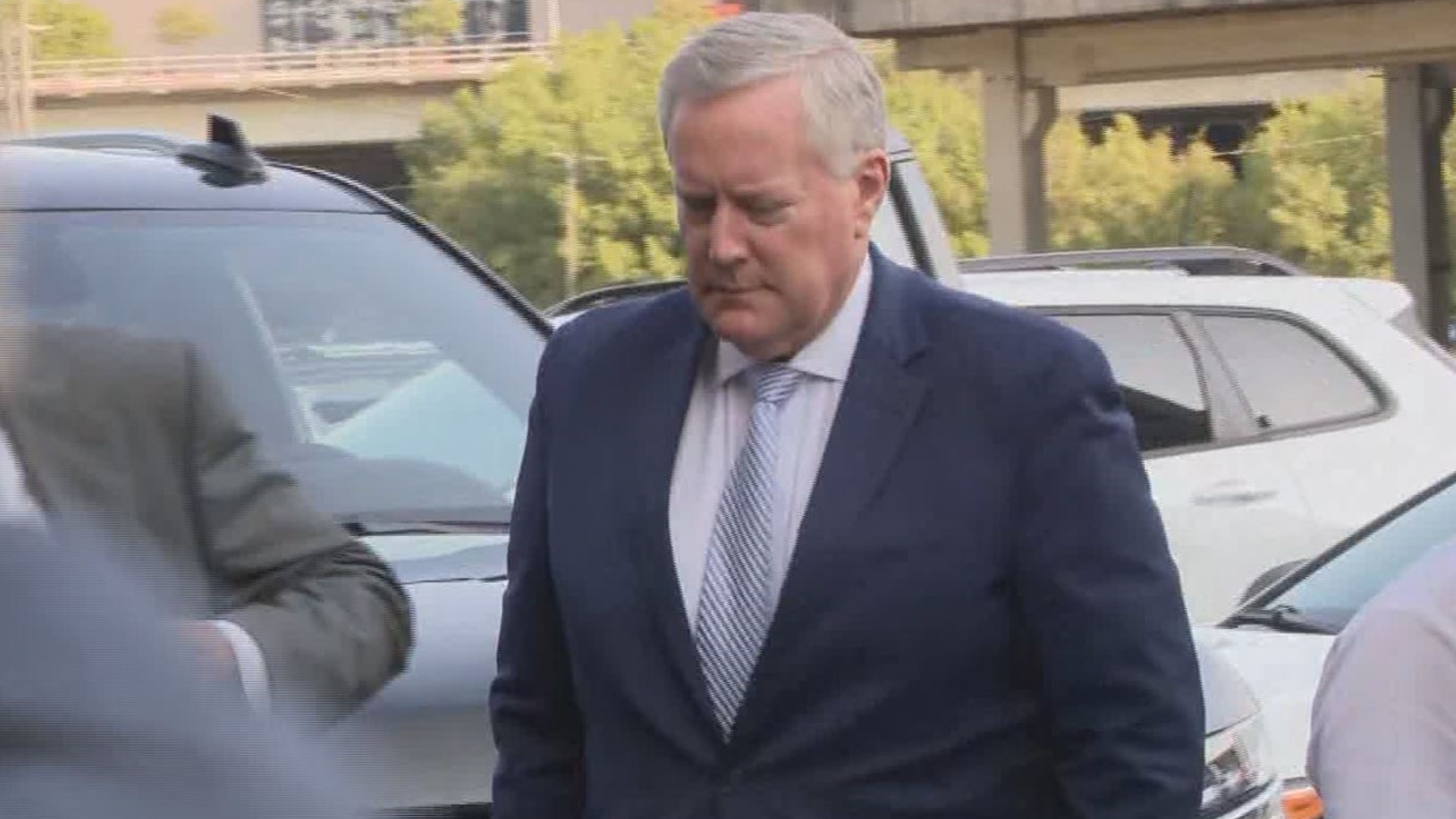ATLANTA — The 11th U.S. Circuit Court of Appeals Monday rejected former White House Chief of Staff Mark Meadows' attempt to move his 2020 Georgia election case to federal court.
A three-judge panel unanimously found that the federal removal statute did not apply to former federal officers.
The judges further ruled that Meadows' post-election activities to assist former President Donald Trump as described in the indictment went beyond the authority of his role. The decision upholds a previous lower court ruling.
"Because federal officer removal under section 1442(a)(1) does not apply to former federal officers, and even if it did, the events giving rise to this criminal action were not related to Meadows’s official duties, we affirm," the ruling stated.
The ruling comes three days after Meadows' legal team and Fulton County prosecutors argued over where the former Trump aide should face criminal charges.
The three-judge panel — Chief Judge Bill Pryor, Judge Robin Rosenbaum, and Judge Nancy Abudu — appeared skeptical of the arguments from George J. Terwilliger III, Meadows' lead attorney, during Friday's hearing.
The scope of Meadow's role
Terwilliger argued Friday that the U.S. District Court in Atlanta improperly ruled against removal earlier this year. U.S. District Court Judge Steve C. Jones wrote in September that only "one of the eight overt acts (in the indictment) attributed to Meadows could have occurred within the scope of Meadows' office."
Meadows and his team insisted that the chief of staff had a wide range of power and that his actions were related to this role.
Meadows testified in late August that his day-to-day responsibilities were nearly “24/7” and included everything from “informal” contacts with policymakers at the state level to consulting on matters of national security.
Fulton County prosecutors rejected arguments that Meadows' actions as described in the indictment were part of his role.
The Fulton County District Attorney's Office accused him of violating the Hatch Act, a 1939 law prohibiting civil service employees, excluding the president and vice president, from engaging in political activity.
In their ruling Monday, the judges affirmed Jones' ruling earlier this year.
"We conclude that Meadows’s association with the alleged conspiracy was not related to his office of chief of staff," the opinion reads. "Simply put, whatever the precise contours of Meadows's official authority, that authority did not extend to an alleged conspiracy to overturn valid election results."
Does the removal statute apply to former federal officers?
Terwilliger argued that the removal statute applied to former federal officers. He warned the judges Friday of the "chaos" that would come if former federal officials faced prosecution in state court.
Chief Senior District Attorney Donald Wakeford argued the removal statue didn't apply to former federal officers, citing a recent decision by the 11th Circuit that vacated the conviction of south Georgia man Timothy Pate.
Pate filed liens against property owned by people he thought had wronged him — including a former Commissioner of the IRS and a former Secretary of the Treasury. Pate was then charged for filing false retaliatory liens against federal officials.
The court ruled 9-3 in Pate's favor, finding that a former civil servant didn't count as an officer or employee of the United States.
During Friday's hearing, Pryor said he had a "hard time" seeing how the statute applied to Meadows, citing a portion of the law that makes no mention of former officers.
However, all three judges expressed concern over a "chilling effect" that might come if former federal officers were forced to keep cases in state courts.
In their Monday ruling, the judges said that Congress had ample opportunities to fix the statute if they want former federal officer to be able to move their cases.
"We acknowledge that, in the 190-year history of the federal- officer removal statute, no court has ruled that former officers are excluded from removal," the decision reads. "And we acknowledge that former officers have removed actions in other circuits. But in most of these decisions—many of which were summary removals and some of which were nonprecedential—the courts did not discuss the text of section 1442 at all."
What's next?
Meadows could appeal Monday's ruling to the U.S. Supreme Court.
Meadows, Trump and 17 others were indicted by a Fulton County charge jury on election charges in August. To date, four people have taken plea deals in the case.
Prosecutors are seeking an August 2024 trial date for the remaining 15 defendants. No date has been set.

